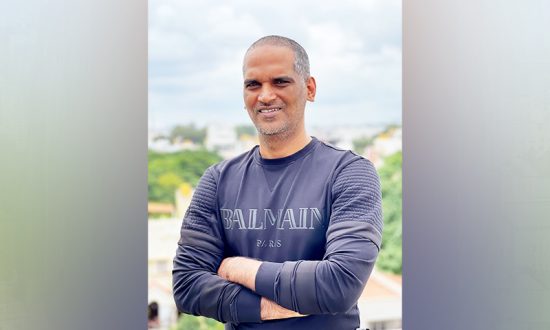Subramanyam Reddy (Subbu) is the Founder and CEO of KnowledgeHut, the leading technology workforce development company that helps enterprises and individuals around the world move forward to the next level with the help of technology. in 2012, at the age of 28, Subbu, as he is known to everyone, started KnowledgeHut. He on-boarded 12 employees and with an initial investment of $10,000 (Rs 5 Lakh). They almost gave up after the first two months of no revenues and no more savings to invest. But then the leads started flowing in and by the end of third month, they generated revenue of around $28,000 (Rs14 Lakh). Since then, there has been no looking back. The company has grown from strength to strength and is now expected to clock an Annual Revenue Run-Rate of Rs300 crore in March 2022.
The COVID-19 pandemic taught working professionals and enterprises a lesson in adaptability. With reverse migration from metropolises and big cities back to their hometowns, professionals across the spectrum of industries were introduced en masse to the concept of working from home. And organizations saw a learning curve adapting to a new normal.
What the experience left leaders in the domain of people solutions is that a long-held view of how work is done needs to change. This learning came at the cost of the Great Resignation, where professionals quit jobs that did not allow them the flexibility to work remotely.
It does raise some questions for industry leaders to think about – why is the modern workforce keen on remote work? And why are organisations resistant to changing their set ways of working? What do enterprises gain from embracing change? And what challenges are in store for those that don’t change.
In a recent announcement, one of the top global tech companies, TCS took a bold stance, stating, “Work from Anywhere, Hybrid Teams, and Asynchronous mode of collaboration are going to be some of the key traits of digital organisations.” For their brand vision for 2025, TCS is moving towards a model where only 25 percent of the workforce will work out of TCS facilities at any given time. They call it the Secure, Borderless Workspaces Vision. Would all tech businesses follow suit?
According to the study on “Technology Reshaping the Future of Work: India Perspective” by NASSCOM, 70% of the Indian technology companies have adopted hybrid work model, while 85% of India’s IT professionals are working remotely or in a hybrid setup.
The hybrid model has brought in a lot of changes for professionals and businesses alike. For professionals, it brings the safety and comfort of working from where they are comfortable. For enterprises, it opens new vistas in terms of access to talent, lower operating costs, and improved employee experience. HCL Technologies with almost 200K employees, is continuing with the WFH model as it helps them ensure “uninterrupted services to our clients”.
Among the many changes the tech industry has undergone, the biggest has been increased access to knowledge. Several professionals have taken the time and costs they save in commute and rents, towards upskilling themselves, acquiring new knowledge in areas allied to their specialisations, or sometimes, even venturing into new areas.
These professionals with enhanced knowledge and experience in fields like project management, data science, machine learning, and more, are now set to work with companies that need and value these skills, across geographies. Naukri.com reported over 32 lakh searches were focused on permanent and temporary jobs, whereas 57 percent of these were for permanent jobs where they work remotely.
As enterprises ramp up investments in hybrid cloud computing setups to facilitate remote work, and provide uninterrupted services to their clients, there is also an internal change in how Human Resources are restructuring their organizations, rethinking their approach to talent acquisition and retention at a policy level.
For large organisations with thousands of employees to fundamentally change their approach to work takes moving a lot of pieces. Which is why, it is inspiring to see a tech and consulting giant like Accenture take the lead and adopt a “no-size-fits-all” approach and not set a date for employees to return to an office. Accenture is also investing in office spaces in cities like Jaipur, Indore, and Coimbatore to give their employees the option to work from an office when they need to.
They say that change is the harbinger of growth. But in the case of remote employees and shifting work cultures, and the benefits experienced by the workforce and organizations alike, it would be safe to say that growth is the harbinger of change. The personal and organisational growth experienced by the collective is driving one of the biggest changes in the modern context of work.




